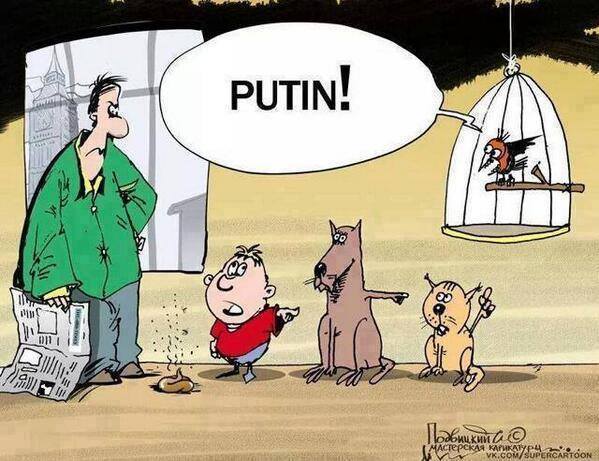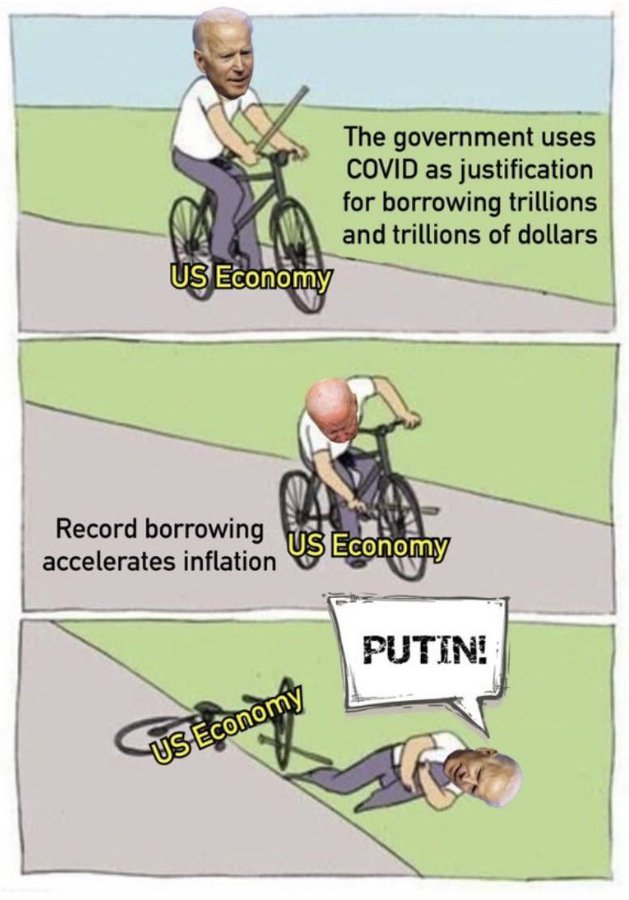lancelot wrote:https://www.bloomberg.com/news/articles/2022-04-29/biden-seeks-to-rob-putin-of-his-top-scientists-with-visa-lure
This is old news really. The Russian government can counter it by granting those peoples exemptions from conscription, preferred house loans, and starting new research labs if they want to.
Biden Seeks to Rob Putin of His Top Scientists With Visa Lure
Proposal would waive certain visa requirements for Russians U.S. enticing experts in semiconductors, cybersecurity, space
April 29
The Biden administration has a plan to rob Vladimir Putin of some of his best innovators by waiving some visa requirements for highly educated Russians who want to come to the U.S., according to people familiar with the strategy.
One proposal, which the White House included in its latest supplemental request to Congress, is to drop the rule that Russian professionals applying for an employment-based visa must have a current employer.
It would apply to Russian citizens who have earned master’s or doctoral degrees in science, technology, engineering or mathematics in the U.S. or abroad, the proposal states.
A spokesman for the National Security Council confirmed that the effort is meant to weaken Putin’s high-tech resources in the near term and undercut Russia’s innovation base over the long run -- as well as benefit the U.S. economy and national security.
Specifically, the Biden administration wants to make it easier for top-tier Russians with experience with semiconductors, space technology, cybersecurity, advanced manufacturing, advanced computing, nuclear engineering, artificial intelligence, missile propulsion technologies and other specialized scientific areas to move to the U.S.
Biden administration officials have said they’ve seen significant numbers of high-skilled technology workers flee Russia because of limited financial opportunities from the sanctions the U.S. and allies have imposed after Putin’s invasion on Ukraine.
The provision would expire in four years. There would be no changes to the vetting process, fees or other rules in the Immigration and Nationality Act.
Russian professionals began leaving the country after the invasion began on Feb. 24.
Konstantin Sonin a economist at the University of Chicago tweeted on March 7 “that more than 200,000 people fled Russia during the last 10 days. The tragic exodus not seen for a century.”
An Interfax report, citing an estimate from the Russian Association for Electronic Communications, said that between 70,000 and 100,000 information technology specialists might try to emigrate in April.
The U.S. and some of its Group of Seven allies have also in recent weeks discussed giving protected status to Russian scientists, including those working at CERN, the European Organization for Nuclear Research.
CERN, which runs the largest particle physics laboratory, suspended most of its work with Russia after the war began.
The US has never understood with all its propaganda about the brain-drain of Russia, predicting that by the 2010s-2020s Russia would have no scientists left - that all those Russian scientists are the product of the Soviet and now Russian education system, and that's where Russia's strength lies. While some emigrate, the country is continuously producing more
And 50% of Russian parents at least according to one survey, want their kids to study STEM fields in university. It's a huge tradition. Add to that the high representation of women in these fields in Russia as well.
To counteract any Western efforts, Russia must not only entice more of its own graduates to stay, but also do two things:
1). Increase the amount of foreign students studying in Russia
2). Entice more foreign students to work in Russia after graduation too
Over the last years a lot of progress has been made on 1), to the point where Russia is the 5th or 6th largest destination for foreign students in the world at the moment, but has been growing faster than its competition at least until the COVID period when everyone's rate of increase dropped drastically. A lot of new university campuses are being built, modern facilities, smaller institutes sometimes merged into larger ones, and progress has been made in increasing Russian university ratings.
Now with the cancellation of Russia by the West, the rating efforts will likely be for nought, and the withdrawal from the Bologna process will likely create some difficulties. If Russian university diplomas are no longer accredited, this will decrease the attraction for foreign students, even those from 3rd world countries, some of which use Russia as a stepping stone to get a cheaper education before then working in Europe or America.
Basically all this has to be worked on with other BRICS members. Likely the bulk of foreign students will still continue to come, because Russia since the USSR days has always primarily worked directly with other national governments to receive students, and invited those students who come to Russia to gain an education or specialty demanded back home, which leads me on to 2).
Russia has started to focus some attention on 2). in recent years, by making it easier for foreign students to legalize working in Russia after graduation via temporary residency, and introducing a scheme whereby those students who attain Red diplomas (highest honors), are eligible for permanent residency if they apply for it. But generally speaking a lot more work has to be done in this field. As mentioned, Russia tends to attract those students who are encouraged to study in Russia by their governments, sometimes with their tuition paid for - and then return home after graduation. This has been changing over the last decade towards more private students, but many of them preferred to work in the West after graduation - an avenue which might now close for graduates from Russian institutes.
The main success in regards to 2) has been for students from the former USSR. They continue to stay in Russia in large numbers after graduation, and to be fair - continue to form the majority of Russia's foreign students as well. However Russia needs to focus on retaining talent from countries further abroad too, whose proportion in Russia's foreign student pool has been increasing.










 JohninMK
JohninMK
